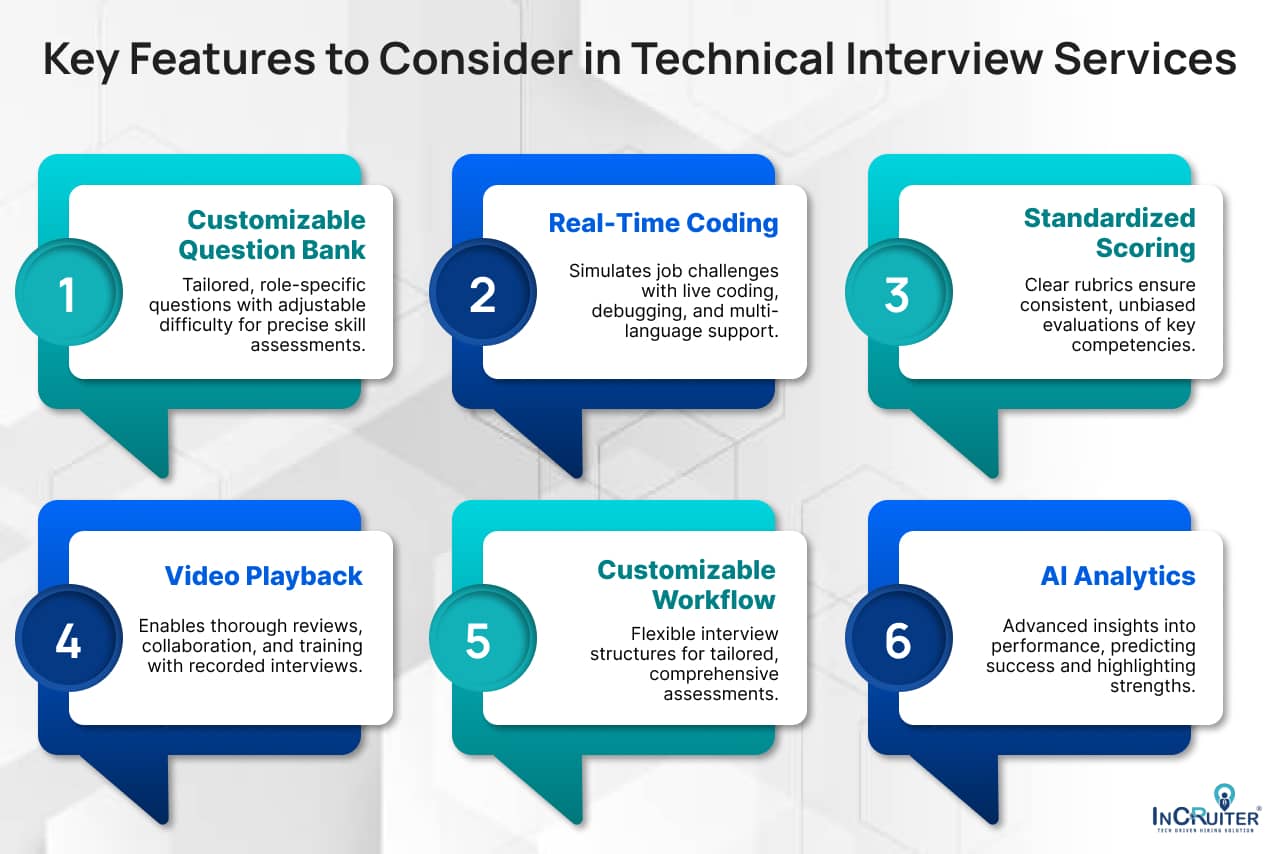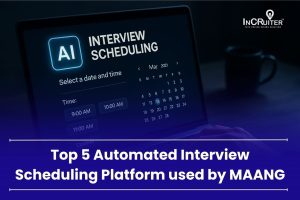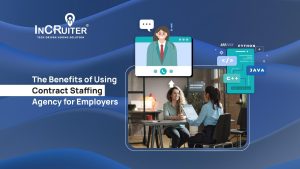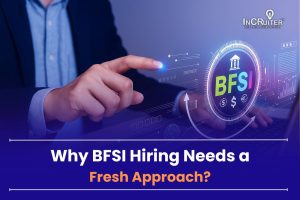
Recruiting talented technical professionals has always been a tough task. The challenge lies not just in finding someone who meets the job’s needs but doing it quickly and efficiently without overwhelming internal teams. The pressure to fill roles with the right candidates while managing tight schedules can leave hiring teams feeling stretched. This is where On-Demand Technical Interview as a Service brings a fresh solution, simplifying the hiring process for technical roles.
With this service, your engineering team can stay focused on their main responsibilities while experienced interviewers handle the technical evaluations. These experts dive deep into assessing candidates’ skills, ensuring they match the specific job requirements. The outcome is a list of candidates who are fully prepared to contribute effectively. This method not only saves time but also guarantees that each potential hire is aligned with the role’s needs.
By opting for On-Demand Technical Interview as a Service, companies can make their recruitment process smoother. It lightens the load for internal teams, keeps operations running smoothly, and improves the quality of hires. In the following sections, let’s break down how this method transforms tech hiring and why it’s becoming a go-to choice for solving modern recruitment hurdles.
What is On-Demand Technical Interview as a Service?
On-Demand Technical Interview as a Service brings in expert interviewers who specialize in assessing technical skills to handle interviews for companies. These professionals step in when needed, whether it’s to manage a surge in hiring, fill specific roles, or assist when internal teams are stretched.
This method offers flexibility and precision. Organizations provide details about the role and the required technical expertise, and the service shapes the interview process to fit. Candidates are assessed for their technical knowledge, problem-solving skills, and role suitability. Afterward, detailed feedback and reports are shared to support informed decisions.
The true strength of this service lies in how it streamlines the hiring process. It saves time for internal teams, ensures every candidate gets an impartial evaluation, and maintains consistent quality even during high-volume hiring. This makes it a reliable choice for companies looking to scale up quickly while keeping recruitment standards high.
Also read: Top 10 Interview as a Service Platforms in India
Key Features to Consider in Technical Interview Services

- Customizable Question Bank
A robust technical interview service offers a dynamic and customizable question bank tailored to specific roles, technologies, and industries. This AI interview software feature ensures that candidates are tested on skills and scenarios relevant to the job description. For instance, a developer role may include algorithm challenges or debugging tasks, while a data scientist role might focus on statistical models or Python proficiency. These questions should be flexible to adjust for varying difficulty levels and evolving job requirements. The ability to create or adapt questions ensures that hiring managers can emphasize the most critical competencies for a role. Additionally, customizable questions help maintain consistency across candidate evaluations while allowing for diverse scenarios to gauge problem-solving capabilities comprehensively. This targeted approach results in more precise candidate coding assessments and better alignment with organizational needs.
- Real-Time Coding Environment
An essential feature of technical interview services is a real-time coding environment that mirrors practical, on-the-job problem-solving scenarios. This feature allows candidates to write, test, and debug code in a live interface, simulating challenges they would face in the actual role. It supports multiple programming languages and provides tools like syntax highlighting, auto-completion, and error debugging. Interviewers can observe candidates’ thought processes, coding efficiency, and problem-solving skills in real-time. Beyond technical skills, this feature helps evaluate how candidates approach tasks under pressure and handle unexpected problems. Advanced platforms also support pair programming interview setups, enabling collaborative tasks. Such environments ensure candidates are assessed on actual capabilities rather than theoretical knowledge, providing a clear understanding of their readiness for the role.
- Scoring Rubrics and Standardized Evaluation Metrics
A robust scoring rubric and evaluation metric framework are critical features of technical interview services. These standardized systems eliminate ambiguity by setting clear criteria for assessing technical skills, problem-solving abilities, communication, and cultural fit. For instance, metrics might include code quality, logic, efficiency, and adherence to best practices. Scoring rubrics also allow consistent grading across candidates, minimizing subjectivity and bias. A well-defined framework ensures that evaluations are data-driven and aligned with organizational hiring standards. Moreover, AI interview tools that enable customization of these rubrics allow hiring managers to prioritize skills specific to their projects or teams. Standardized metrics ensure that every candidate is evaluated equitably, improving hiring accuracy and reinforcing trust in the recruitment process.
- Video Recording and Playback
Video recording and playback capabilities are indispensable in modern technical interview services. This AI video interview software feature enables interviewers and stakeholders to revisit interviews, analyze candidate responses, and spot nuances they might have missed during the live interaction. It is particularly valuable in collaborative hiring processes, where multiple team members review and discuss a candidate’s performance. Recorded sessions also support fairness, as decisions can be cross-checked and verified with concrete evidence. Moreover, playback functionality aids in training hiring teams, offering examples of exemplary or subpar performances. For candidates, recorded feedback sessions can be a learning tool, helping them understand areas for improvement. Overall, this feature ensures transparency, thoroughness, and collaboration in the hiring process.
- Customizable Interview Workflow
Flexibility in structuring interviews is a standout feature of technical interview services. A customizable workflow allows organizations to design interviews based on their specific requirements, whether a single technical assessment or a multi-stage evaluation process incorporating coding, logic tests, and soft skills assessments. For instance, companies hiring for leadership roles might combine live problem-solving tasks with situational judgment tests. The ability to add or remove stages ensures the process remains agile, adapting to different roles or hiring volumes. This customization also supports varied candidate experiences, such as focusing on soft skills for client-facing roles. Tailoring the interview process ensures alignment with organizational goals while enhancing candidate engagement and evaluation depth.
- AI-Powered Analytics
Advanced technical interview services integrate AI-powered interview software analytics to offer deeper insights into candidate performance. This feature goes beyond basic evaluations, analyzing patterns in coding style, efficiency, problem-solving approach, and decision-making. AI tools can identify top performers by benchmarking their skills against industry standards. Additionally, sentiment analysis may provide insights into communication style and confidence. These analytics can uncover details human evaluators might miss, such as subtle inefficiencies or unique strengths. AI-powered interview platforms also predict candidate success based on historical data, helping organizations make data-driven hiring decisions. This feature is particularly useful for high-volume hiring, where recruiters need to quickly shortlist the most promising candidates without compromising assessment quality.
Also read: Implementing Interview as a Service: A Step-by-Step Guide
Why companies opt for Technical Interviews as a Service?
Hiring skilled talent has always been a tough task, and outsourcing technical interviews is quickly becoming the answer for many companies. The need for specialized roles is growing fast, making the process even harder. The World Economic Forum says that by 2025, nearly 40% of key skills will change. This shift means businesses must adapt while still managing to fill technical roles.
Time is another big challenge. According to LinkedIn, 67% of recruiters find it hard to manage tight schedules. Traditional interviews take up a lot of time and often pull internal teams away from their daily tasks. Balancing recruitment and regular work can be draining. That’s why many businesses now choose to outsource technical interviews to make things smoother and faster.
But the struggle doesn’t stop at time management. A study by ManpowerGroup found that 77% of employers face problems finding candidates with the right technical skills. Many in-house teams don’t have the tools or expertise to properly evaluate these niche abilities. This can lead to hiring mistakes, wasting time and resources.
Outsourcing technical interviews brings in experts who can fairly and accurately assess candidates. This saves time and ensures only the best-fit candidates move forward. Companies can focus on their main work while still expanding their hiring efforts. Outsourcing isn’t just a quick fix—it helps businesses build a strong and capable workforce to meet future challenges.
Companies Using Interview as a Service solution
Dassault Systèmes
Dassault Systèmes, a global leader in 3D design and engineering software, uses AI interview software to improve its developer hiring process. With a growing need for skilled engineers, their internal teams struggled to evaluate candidates efficiently while keeping up with other priorities. Outsourcing helped Dassault save time, deliver unbiased assessments, and maintain consistency in interviews. As a result, they reduced hiring delays and focused on building better technology while bringing on talented engineers to drive their projects forward.
Xebia
Xebia, a well-known IT consultancy and software development company, turned to Technical Interview as a Service to handle its large-scale hiring needs. With multiple tech stacks to manage, their internal resources often faced overload, making it tough to keep hiring organized and efficient. By outsourcing technical interviews, Xebia streamlined their process and ensured candidates were evaluated quickly and fairly. This allowed their teams to focus on core work while hiring skilled developers who fit the job perfectly.
Lumen Technologies
Lumen, a global tech company, uses Interview as a Service to handle its hiring challenges for niche roles. Finding the right talent while managing tight deadlines was tough for their senior engineers. Outsourcing interviews gave Lumen access to quicker hiring cycles and fair, in-depth technical evaluations. This approach reduced delays, improved the experience for candidates, and ensured only qualified developers moved to the next stage. By removing bottlenecks, Lumen kept projects on track and hired job-ready talent with confidence.
Future of Interview as a Service
The way technical hiring works is changing fast, and Interview as a Service is leading the way. Companies today are struggling with a shortage of skilled candidates, stretched hiring teams, and pressure to close roles quickly. Because of these challenges, outsourcing interviews is becoming a go-to solution for many businesses. A recent study shows that 76% of recruiters feel that using structured interview services can cut down hiring time by almost half.
What’s driving this shift? Modern tools like smart assessments, live coding simulations, and global reach are reshaping how companies hire tech talent. These services ensure that interviews are faster, fairer, and much more efficient. Plus, they help teams focus on their work instead of spending endless hours conducting interviews.
By adopting InCruiter Interview as a Service, businesses can hire top talent without delays or biases. In a competitive hiring world, those who adapt quickly will always stay ahead.
Ready to Transform Your Hiring Process?
Discover how our AI-powered interview platform can streamline your recruitment and find the best candidates faster.






